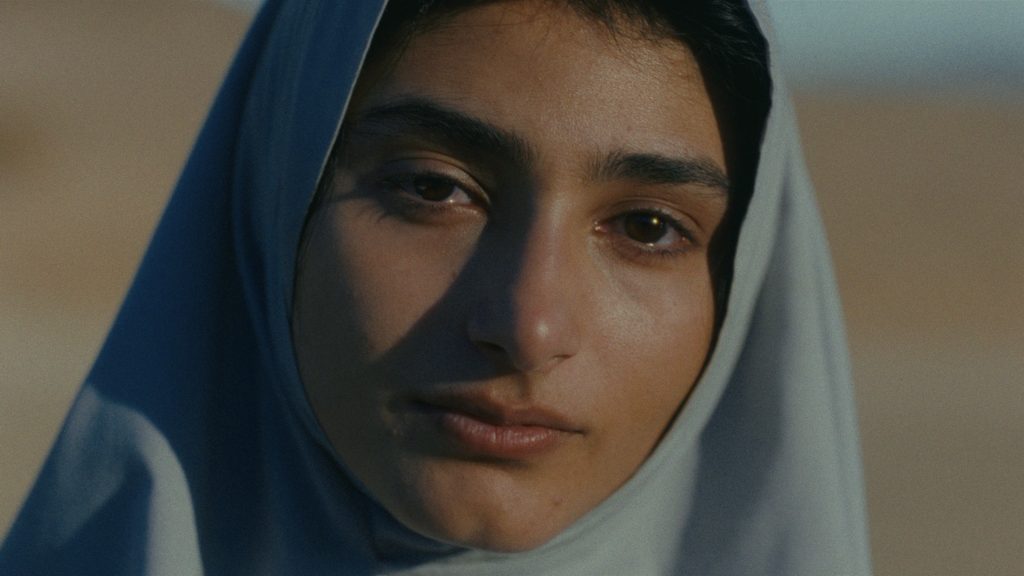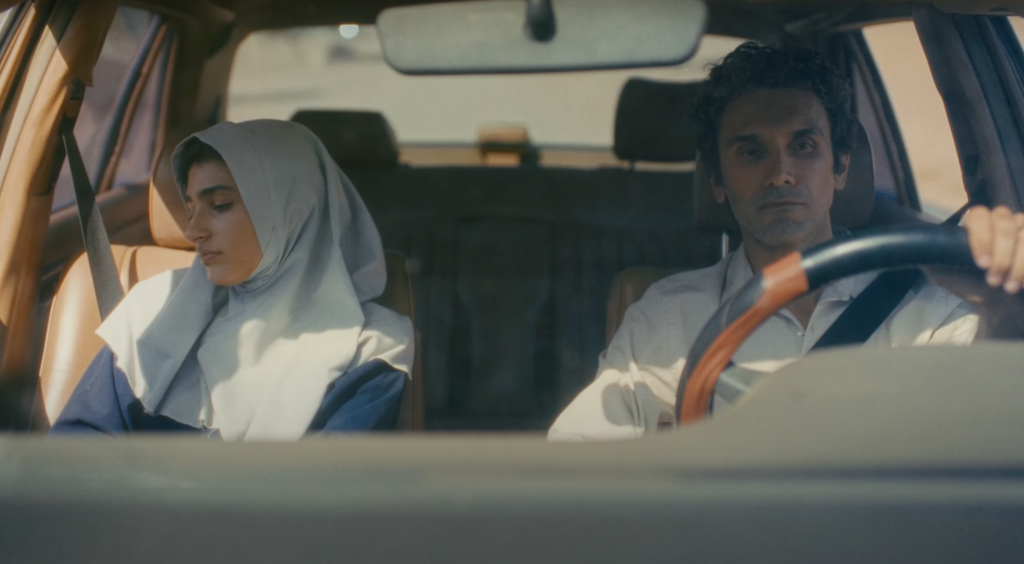Director: Julia Elihu
Writer: Ava Lalezarzadeh
Stars: Ava Lalezarzadeh, Iman Nazemzadeh, Milad Dylan
Set in 1988, at the height of the Iran-Iraq War, Caroline (Ava Lalezarzadeh) takes a final car ride with her father Sharif (Iman Nazemzadeh). Fearing for his daughter’s safety and future, Sharif plans to smuggle her out of the country to escape persecution. The resulting road trip is a bittersweet tale of intimate father-daughter bonding shattered by the journey’s perilous purpose.
The Weight of a Personal Story
Writer and star Ava Lalezarzadeh’s film is not just a classic story of escape from a repressive regime.Much like Ashley Tabatabai with ‘Hamdardi’, Ava’s story is a true familial one, based on her own mother’s escape from Iran in 1988. The Iranian Revolution of 1979 left the 80,000 strong Jewish community at the time fearing for their safety in the new regime.
As a Jewish Iranian Ava’s grandfather feared for his daughter and so arranged for her escape. Her story is relatable not just to the thousands fleeing their homes but anyone who fears persecution because of their faith and heritage.
Simplicity and the Restricted View
While often stated, the observation that the power of this film lies in its simplicity could not be more apt for In The Garden of Tulips. Director Julia Elihu skillfully employs restricted narration allowing the story to unfold mainly from Caroline’s perspective. Regardless of the occurrence the camera always switches to Caroline as we experience her emotion.
The story and Caroline’s perspectives are amplified through the mise-en-scene with each setting juxtaposing joy and fear, isolation and openness. Adding the diegetic score into the mix makes the audience vicariously live Caroline’s experience.
Isolation and Sanctuary: A Cinematic Duo
With her Director of Photography Freddie Whitman, Julia Elihu uses the environment to convey Caroline and Sharif’s emotive states and draw us into the story. The car and the open countryside both represent isolation – stuck in a confined space in the middle of nowhere can be daunting. Yet this cinematic duo also created a safe microcosm where both Caroline and Sharif forget the real reason for their road trip.
The countryside provides a comforting familiarity of home, especially the tulips, whilst the car is a safe space for Caroline and Sharif to enjoy some father daughter bonding, singing songs and sharing laughs. This intimate father/daughter moment is rudely interrupted by Milad Dylan’s traffic cop. This gives both the players and us a sharp wake up call back to reality.

The Wake-Up Call: Strength Under Pressure
The traffic cop scene is the film’s most tension-filled but is also the one where Caroline’s strength comes into its own. Whilst Sharif and the cop are leading the scene its Caroline’s stoic calm under pressure that is the key moment. Her sharp awareness and quick thinking switch her role from one where things are now in her control. She becomes the comforter in place of Sharif.
The use of long shot and hand held shaky cam give this scene that classic documentary feel switching from one player to the other heightening the emotional interplay. The events feel real because they are, or at least we know this happened to many Carolines in real life.
Capturing The Refugee Experience
In The Garden of Tulips succeeds precisely because Director Julia Elihu and Writer/Star Ava Lalezarzadeh refused to let a historical event remain abstract. By employing a tightly restricted narration and emphasizing the evocative mise-en-scène, the film transforms a frightening escape into a viscerally felt, intimate father-daughter experience.
This personal focus, heightened by the tension-filled traffic stop scene where Caroline finds her inner strength, allows the audience to directly confront the fear and resilience inherent in the refugee experience. The result is a simple, powerful, and deeply moving cinematic account that honors both a family’s history and the enduring human spirit.

1 thought on “[Review] In The Garden of Tulips”